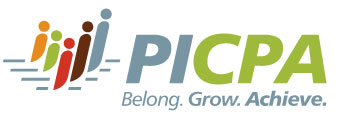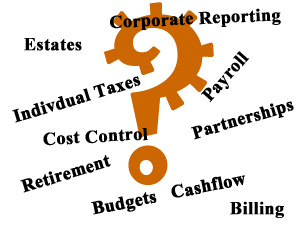
Search Site
- Dates to Remember
- View Calendar
There are currently no upcoming events. Please check back later.



Frequently Asked Questions

What is a CPA and what do they do?
CPA stands for Certified Public Accountant and is an accountant who has passed certain examinations and met all other statutory and licensing requirements of a United States state to be certified by that state. CPAs are no longer just number crunchers and tax preparers. They are business and financial strategists for their clients and provide numerous services, including but not limited to: tax preparation, tax planning, bookkeeping, accounting, auditing, business consulting, and more.
What is a PFS?
PFS stands for Personal Financial Specialist and is a Certified Public Accountant (CPA) who meets the financial planning requirements established by the American Institute of Certified Public Accountants (AICPA). The credential is awarded only to CPAs who demonstrate the requisite experience, education, examination, and ethical standards established by the AICPA.
-
In order to obtain the PFS credential, one must:
- Be a CPA in good standing
- Be a member in good standing with the AICPA
- Earn a minimum of 80 hours of personal financial planning education
- Pass a comprehensive Personal Financial Planning exam
- Have at least two years (or 3,000 hour equivalent) of full-time financial planning business experience
- Agree to be bound by the AICPA Code of Professional Conduct
- Meet continuing education requirements
What types of businesses do you work with?
We work with small and medium sized business ranging in industry from landscaping to food services. We specialize in small businesses and enjoy watching an idea turn into a career.
Do you have experience with non-profits?
Yes, we do.
How many years’ worth of tax returns should I keep?
There are a few things to consider when answering this question. The basic rule of thumb is four years, but the IRS can go back as far as ten years or more if they so choose and depending on the severity of the issue. Albeit less likely to happen. We recommend keeping the last seven years’ tax returns and keeping them in a safe place out of reach.
When it’s time to get rid of some tax returns, remember that they contain highly confidential information and should be destroyed appropriately by shredding all documents.
What can I do to make working together as efficient as possible?
Make sure that you give as much if not all of the information that may be requested as quickly as possible. Tax returns, bookkeeping, and accounting, for instance, are very time intensive matters. It will take longer, and cost more, if we have to continually ask for more information or additional clarification on matters. A quick and thorough response to our request will improve the speed of the project and the efficiency at which it is completed. No one likes to get waist deep into a complicated project only to have to stop because a piece is missing.
Should I start a business?
This is a very personal and life-changing question. We can help you take a good look at your current situation and estimate what changes would need to happen in order to start your own business and run it well. Contact us for your complimentary consultation.
Should I update my will?
If it’s been a while, or things have changed in your life, the answer is a resounding “Yes!” It’s best to review your assets and make sure they are positioned appropriately to minimize tax and maximize the amounts going to your heirs. We can help. Please Contact Us today!

